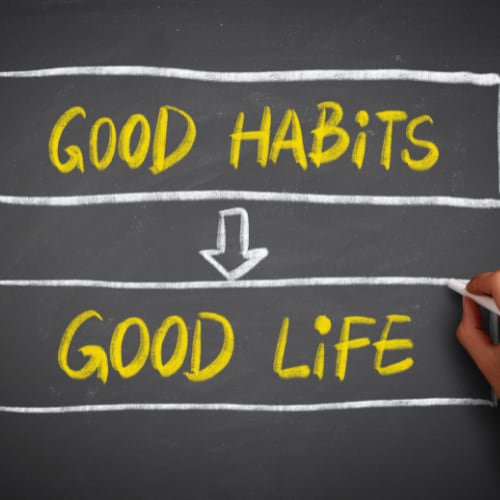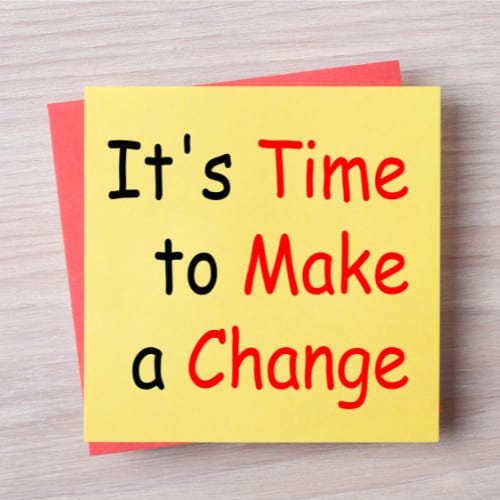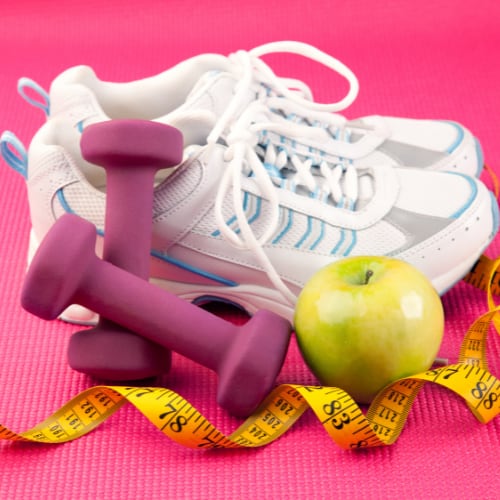 The Power of Daily Habits
The Power of Daily Habits
The Power of Daily Habits

-
Main Ideas
Learning Objective
Understand how daily habits influence long-term health and well-being, and learn strategies to create new habits that support a healthier lifestyle.
Behavioral Objective
Identify current habits and develop a plan to replace negative habits with positive, health-supporting behaviors that can become automatic over time.
Key Thought
Small, consistent actions shape our future, and by choosing better habits, we can improve our overall health and quality of life.
-
Main Ideas
Learning Objective
Understand how daily habits influence long-term health and well-being, and learn strategies to create new habits that support a healthier lifestyle.
Behavioral Objective
Identify current habits and develop a plan to replace negative habits with positive, health-supporting behaviors that can become automatic over time.
Key Thought
Small, consistent actions shape our future, and by choosing better habits, we can improve our overall health and quality of life.
-
Terms
- Behavior Change
noun
The process of replacing old, unwanted behaviors with new, desired behaviors through conscious effort and repetition.
- Habit
noun
A repetitive behavior or action that is often automatic and driven by environmental cues or internal triggers.
- Muscle Memory
noun
The process by which repetitive actions become automatic through practice, often associated with physical tasks but applicable to any repeated behavior.
- Negative Habits
noun
Behaviors that have a detrimental effect on health or well-being, such as overeating, smoking, or lack of physical activity.
- Positive Habits
noun
Behaviors that contribute to long-term health and well-being, such as regular exercise, healthy eating, and stress management practices.
- Repetition
noun
The consistent performance of an action or behavior, which helps to solidify it as a habit over time.
-
Terms
- Behavior Change
noun
The process of replacing old, unwanted behaviors with new, desired behaviors through conscious effort and repetition.
- Habit
noun
A repetitive behavior or action that is often automatic and driven by environmental cues or internal triggers.
- Muscle Memory
noun
The process by which repetitive actions become automatic through practice, often associated with physical tasks but applicable to any repeated behavior.
- Negative Habits
noun
Behaviors that have a detrimental effect on health or well-being, such as overeating, smoking, or lack of physical activity.
- Positive Habits
noun
Behaviors that contribute to long-term health and well-being, such as regular exercise, healthy eating, and stress management practices.
- Repetition
noun
The consistent performance of an action or behavior, which helps to solidify it as a habit over time.
Introduction
Our daily habits profoundly impact our health, well-being, and future. Though they may seem small and insignificant, the consistent actions we take each day add up over time. By understanding the power of habits, we can make intentional choices that lead to long-lasting positive changes, helping us live healthier, more fulfilling lives.
The Strength of Daily Habits
In the movie CLICK, a character gains a remote control that allows him to manipulate time-fast-forwarding through the mundane parts of his life. Over time, he realizes that these seemingly small and ordinary moments are actually the building blocks of the life he loves. This reflection highlights the power of daily habits: the small, routine actions we take each day shape the course of our lives in ways we often don't realize.
Consider a personal example of this. Years ago, I regularly ate at a favorite BBQ restaurant that served the typical processed American diet-fried foods, sodas, and high-sugar sauces. Even after making significant dietary changes, we continued the habit of visiting this restaurant once a year as a special treat. However, during a recent visit, the food no longer tasted the same. The fried chicken and sugary sauce left me feeling sluggish and sick, and even my children complained about the food. The restaurant hadn't changed, but our eating habits had. I realized that small, consistent improvements to our diet had led to a significant transformation in how we felt and what we craved. This was a clear reminder of how much power our daily habits hold in shaping our health and well-being.
The Hidden Power of Habits
Are habits inherently good or bad? The answer depends on their outcome. Habits themselves are neutral, but the results of those habits can either help or harm us. Whether positive or negative, habits are powerful forces that shape our present and future, guiding our decisions day after day.
Imagine having a personal assistant who works tirelessly, completing tasks that move you closer to your goals. That's the role habits play in our lives. Once established, they become automatic behaviors that operate with little effort, helping us achieve our objectives. At any point, you have the power to create new habits that serve your well-being.
How Habits Are Formed
Think back to when you first learned how to drive. At first, the process seemed overwhelming-managing the steering wheel, pedals, mirrors, and signals all at once. Now, driving is likely second nature, requiring little conscious thought. This same process applies to building new habits, whether they relate to food, exercise, stress management, or self-care. Although forming new habits may feel challenging initially, repetition and consistency will make them automatic over time.
Creating a habit is like training a muscle: the more you practice, the stronger and more automatic it becomes. With each repetition, you're programming your brain to adopt behaviors that align with your goals. Over time, these habits will serve you better than old, unhealthy ones. Remember, the habits you choose to form will shape your future, so choose wisely.
For more insights on building strong habits, consider exploring the work of authors like Brian Tracy or Jack Canfield.
Identifying Your Current Habits
Objective: Recognize the habits that are currently shaping your daily life and evaluate their impact on your health and well-being.
Activity:
- Write down a list of your daily habits, both positive and negative (e.g., morning routine, eating habits, exercise, screen time).
- Next to each habit, note whether it contributes positively or negatively to your overall health and goals.
- Choose one negative habit that you would like to replace with a positive one and identify a small first step to start changing it.
Building a New Habit
Objective: Learn how to establish a new, positive habit through consistency and repetition.
Activity:
- Choose one positive habit you want to build (e.g., walking for 15 minutes, drinking more water).
- Commit to practicing this habit every day for the next two weeks.
- Track your progress in a journal or app, noting how you feel each day after completing the habit.
- After two weeks, reflect on the progress you've made and adjust your plan if necessary to keep building the habit.
Reprogramming an Old Habit
Objective: Replace a negative habit with a positive behavior that better serves your health and well-being.
Activity:
- Identify a habit that no longer serves you (e.g., eating unhealthy snacks late at night).
- Choose a positive behavior to replace it (e.g., drinking herbal tea or reading a book before bed).
- For the next week, every time you feel the urge to engage in the old habit, substitute it with the new behavior.
- Record how this change makes you feel physically and emotionally and assess your progress at the end of the week.
Course Outline
![]() Session Expired from Inactivity
Session Expired from Inactivity
Do you want to?
9618 Jefferson Highway, Suite D-191
Baton Rouge LA 70809-9636
(888) 424-0032 |
support@supplementrelief.com
* Disclaimer: This page is available exclusively for SupplementRelief.com clients. None of the information on this website is intended to replace your relationship with your healthcare provider(s). Nothing should be considered medical advice. The information, knowledge, and experience shared on this website are the opinions of SupplementRelief.com. This site and its content are intended to enhance your knowledge base as YOU MAKE YOUR OWN HEALTHCARE DECISIONS in partnership with your qualified health professional.
* These statements have not been evaluated by the Food and Drug Administration. These products and services are not intended to diagnose, treat, cure, or prevent disease.
* There is NO GUARANTEE OF SPECIFIC RESULTS for the products or services offered, and the RESULTS CAN VARY for each individual. Any results claimed by our customers are based on individual experiences that are unique and cannot be guaranteed.
FirstFitness Nutrition and NuMedica may be promoted and sold on the internet ONLY by Authorized Resellers who have been approved by and have registered their website domain with these companies. They strictly prohibit, and actively monitor, the UNAUTHORIZED SALE or RESALE of their products in ALL online public shopping portals including Amazon, eBay, and others and into other countries. All products purchased in SupplementRelief.com are for PERSONAL USE ONLY and CANNOT BE RESOLD to others. Please report violations of Reseller Policy directly to FirstFitness Nutrition at 800.621.4348 and to NuMedica at 800.869.8100.
The content and photographs on this website are copyrighted or Licensed Material and may not be downloaded for other than personal use. Republication, retransmission, reproduction, or any other use of the content or photographs is prohibited. ©2010-2024 SupplementRelief.com.
Are you sure you want to remove this item?






